
Cittaslow
Our community belongs to the international Cittaslow movement and therefore emphasizes its values, such as local characteristics and culture, a humane, wholesome society, and an unspoiled, safe environment. The main idea behind Cittaslow is to take your time to enjoy life – speed does not need to be a lifestyle. When traveling (slowly and pleasantly!) through our community, look for the Cittaslow logo: an orange snail carrying a village on its shell. It appears as a sign of quality in the stores, shops, and restaurants in Djúpivogur, promising that what they sell – whether food, handicrafts, or other goods – is sourced within the community
In the broadest sense, the goal of the Cittaslow movement is to enhance the quality of life and satisfaction of people by resisting globalization, homogeneity, and speed in modern cities and towns, and instead of honoring iqueness, awareness, and sustainability.
To meet this goal, Cittaslow’s policies focus on the protection of nature and cultural heritage, the beautification of the environment, the quality of the environment, the use of the latest technologies for the benefit of society, the promotion of local food culture and production, safety and accessibility, hospitality, courtesy, and friendliness.
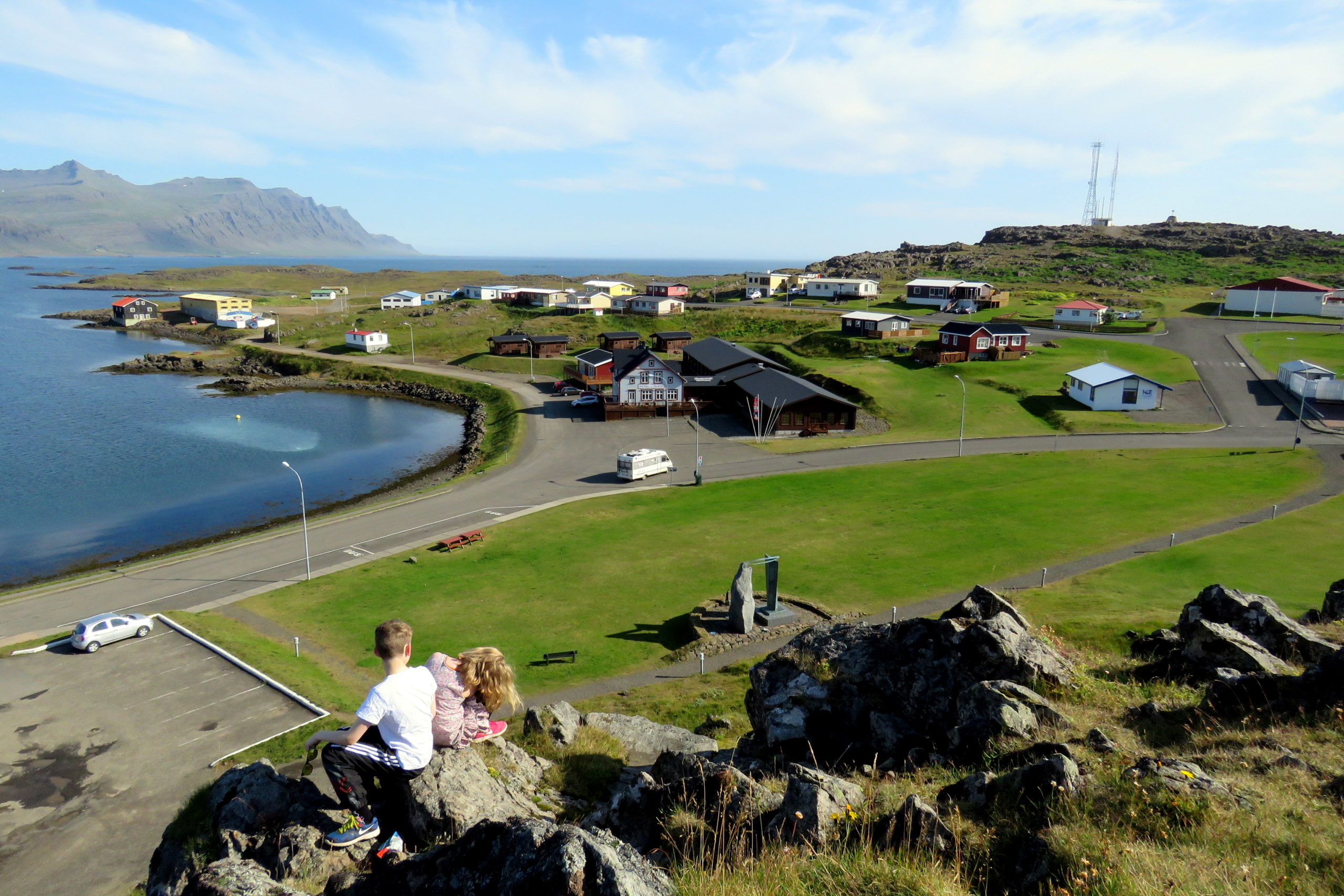

7 categories – 72 criteria
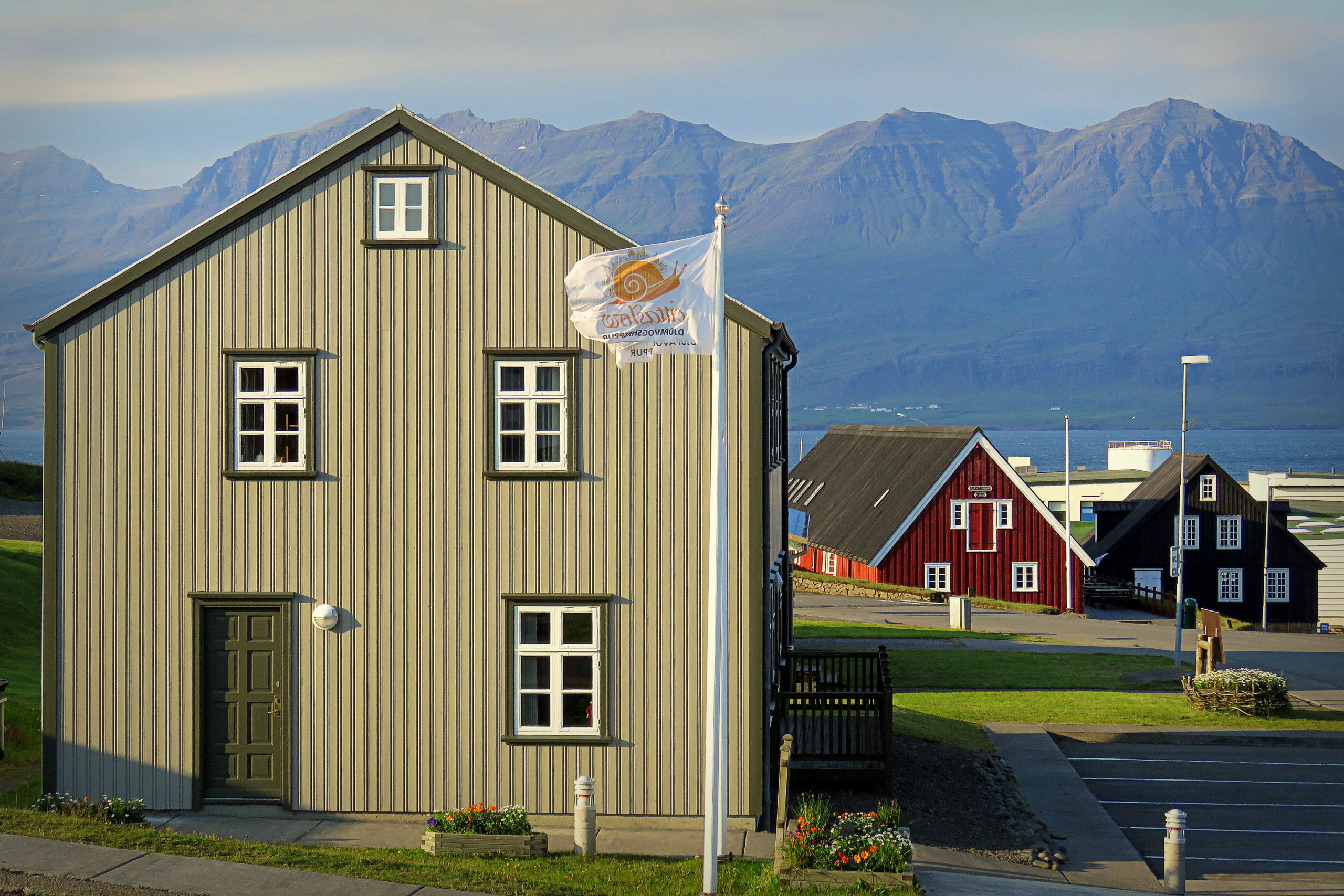
By joining the Cittaslow movement, a municipality commits itself to working towards 72 criteria set out in the following seven categories:
– Energy and environmental policy
Air, water and soil quality shall be in accordance with applicable laws and regulations, but electromagnetic pollution, noise pollution and pollution due to electric lighting shall also be taken into account. Waste should be sorted and recycled and composting should be encouraged. The use and cultivation of genetically modified organisms in agriculture is prohibited, participation in Local Agenda 21 is recommended, as well as the introduction of environmental standards such as EMAS and ECOLABEL.
– Infrastructure policy
Work shall be done on the development and restoration of cultural monuments, the beautification of urban areas and the reorganization of degraded areas. Traffic safety shall be strengthened, good access to services and desirable rest areas shall be provided, good walking and cycling routes shall be planned and attractive public and outdoor areas shall be created. A friendly welcome and a rich sense of service should be valued, and plans should be made for a more enjoyable and increased togetherness and cooperation between residents and visitors.
– Urban quality of life policy
Care must be taken to ensure that the structure fits in well with the environment and the building materials are environmentally friendly. A plan shall be drawn up for the planting of vegetation in public areas and private parks; Technology should be used for the benefit of the population and society, for example by promoting teleworking and distance learning, but also by interactive websites that provide direct contact with authorities or service providers.
– Policy on agriculture, tourism and crafts
The development of organic farming shall be strengthened and the use of organic and local ingredients in cooking, such as in restaurants and schools, shall be promoted. Emphasis is placed on holding courses for pre-school and primary school students on food and cooking in collaboration with SlowFood. The quality of production and the protection of local production methods should be ensured, a platform for the marketing of local production should be created, and local cultural events and traditions should be honored and further promoted.

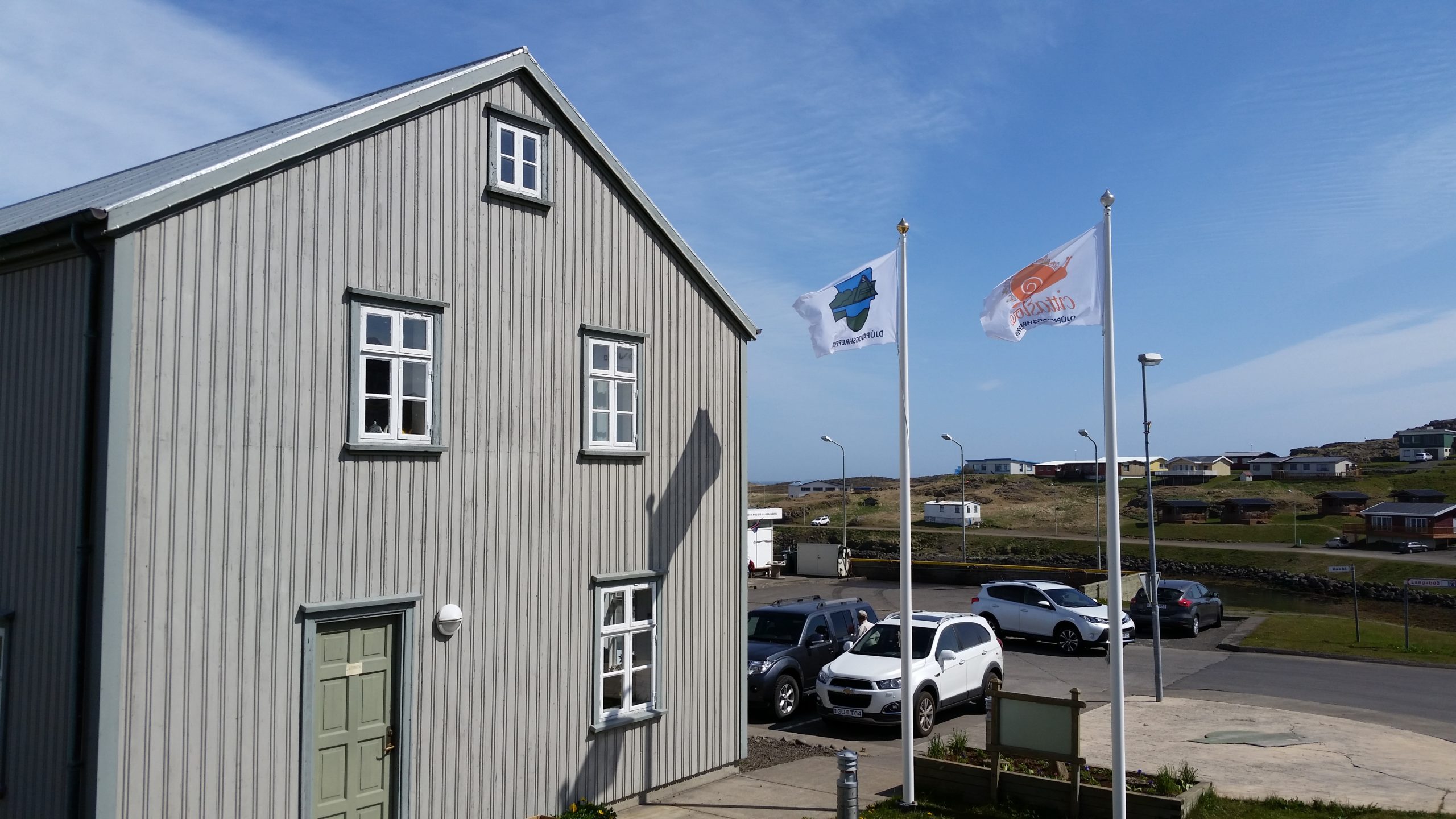
– Rules regarding hospitality, awareness and training
The friendly welcome and competence of those who receive tourists, have flexibility in the opening hours of shops and all kinds of services and pay access to information should be emphasized. Guided hikes should be offered and tourist sites and interesting hiking trails should be clearly marked.
– Social cohesion
It must be explained how Cittaslow’s criteria will be adapted to society, as well as plans for how to promote the participation and cohesion of the population in the areas covered by Cittaslow’s criteria. Minority groups are nurtured and there is room for all social groups. Multicultural integration is paramount, fostering minorities and creating spaces for people with disabilities, children and young people.
– Collaboration
Support for campaigns and slow food campaigns. Collaboration with other parallel organizations. Support for relationship projects and the spread of the ideology.

Saga Cittaslow
Towards the end of the last century, four Italian mayors agreed that they had had enough of modern globalization and speed. Their actions to want to merge different cultures into the same meld without thinking and to have little effect on societies and the environment. They considered it necessary to set out a policy emphasizing the opposite; where respect for people, local culture and the environment would be respected. With this vision and the SlowFood ideology in mind, the Cittaslow movement was launched in 1999.
Since then, many have found harmony with the Cittaslow movement. It has grown rapidly, and by April 2013, 176 towns and municipalities in 27 countries around the world had joined the movement. By 2021, there will be 30 countries and 272 towns and municipalities.
In a larger context
The Cittaslow movement is the offspring of The Slow Movement, which dates back to 1986, when journalist Carlo Petrini protested the opening of the McDonald’s fast food chain restaurant in Rome’s famous Piazza di Spagna square, the first in Italy. Since then, the SlowFood Movement has been working to uplift human values and local culture with respect and awareness of the environment and origins.
In recent years, the “easy” ideology has grown side by side and has been applied to many areas of society, but in addition to Cittaslow we can mention Slow Living, Slow Travel, Slow Design & Slow Fashion.
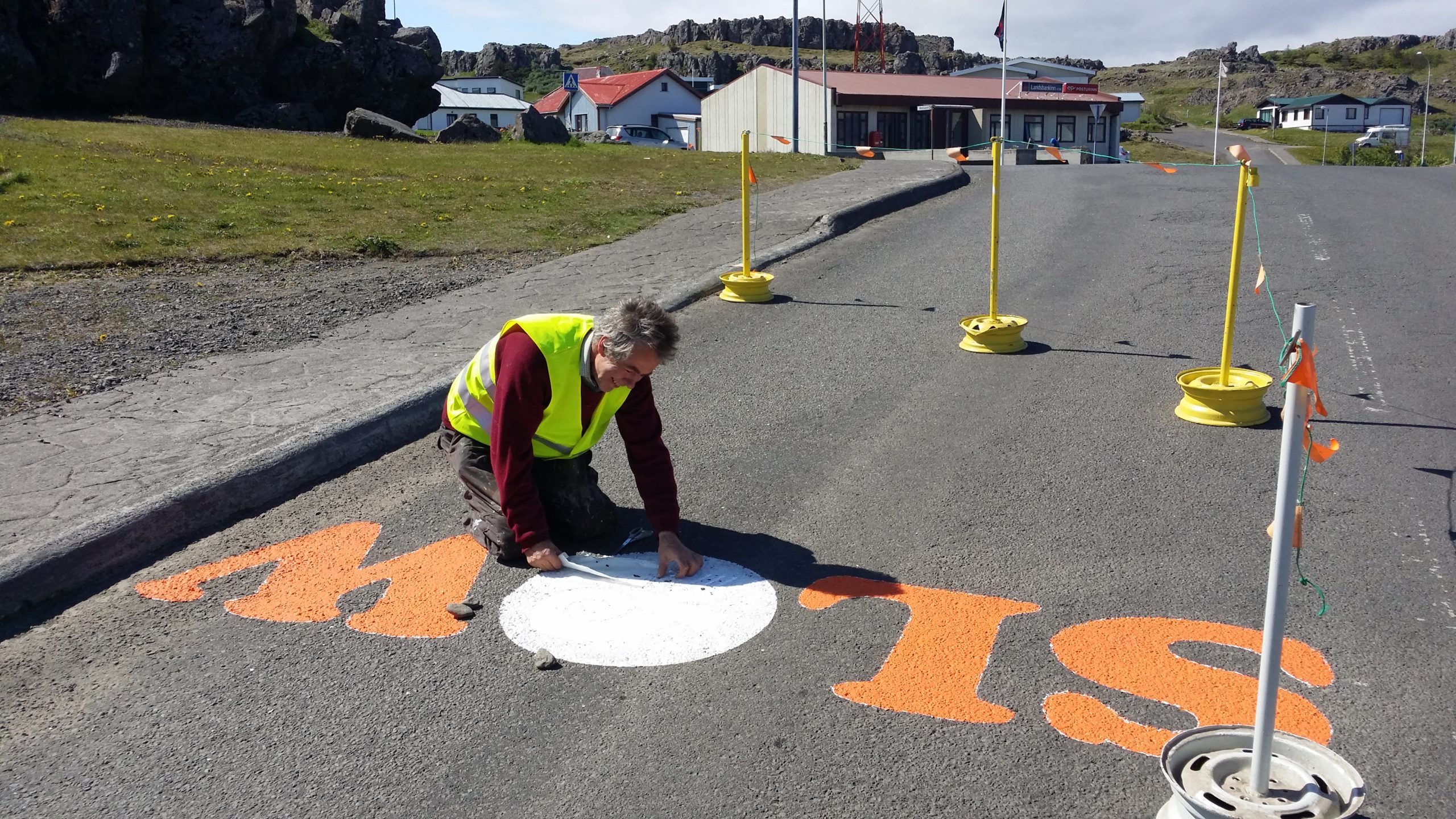
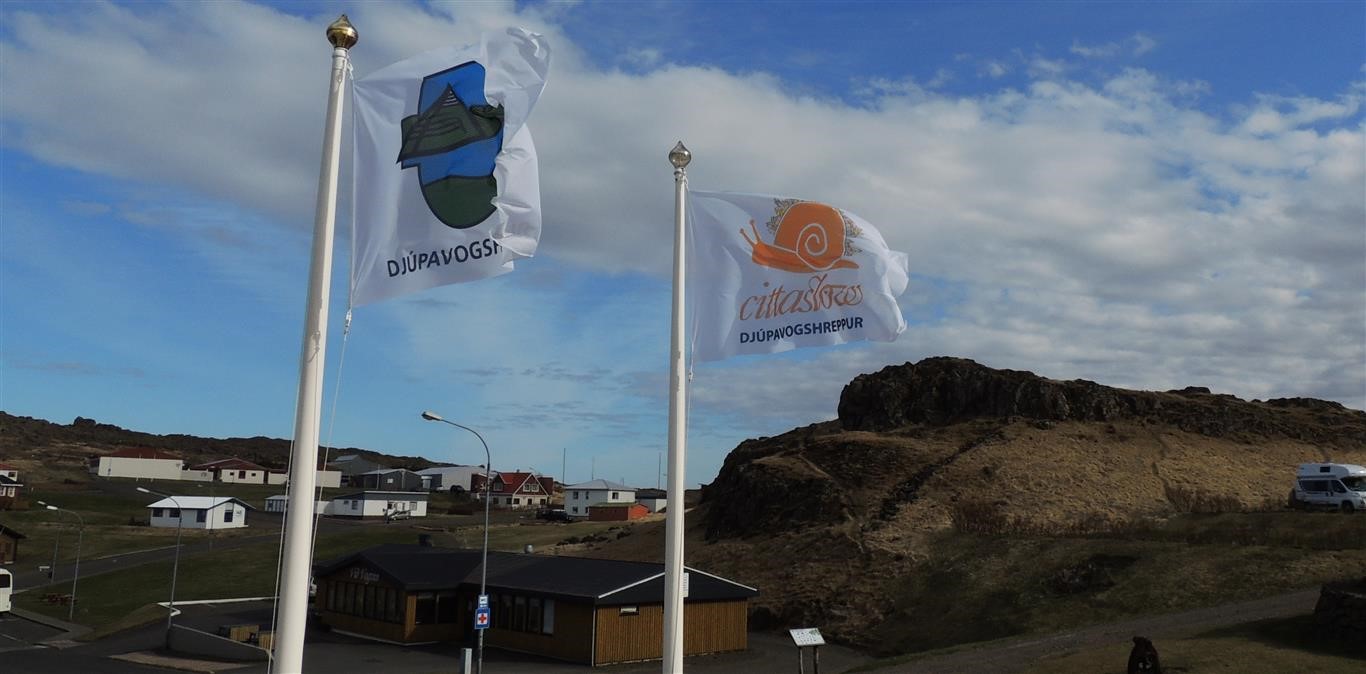
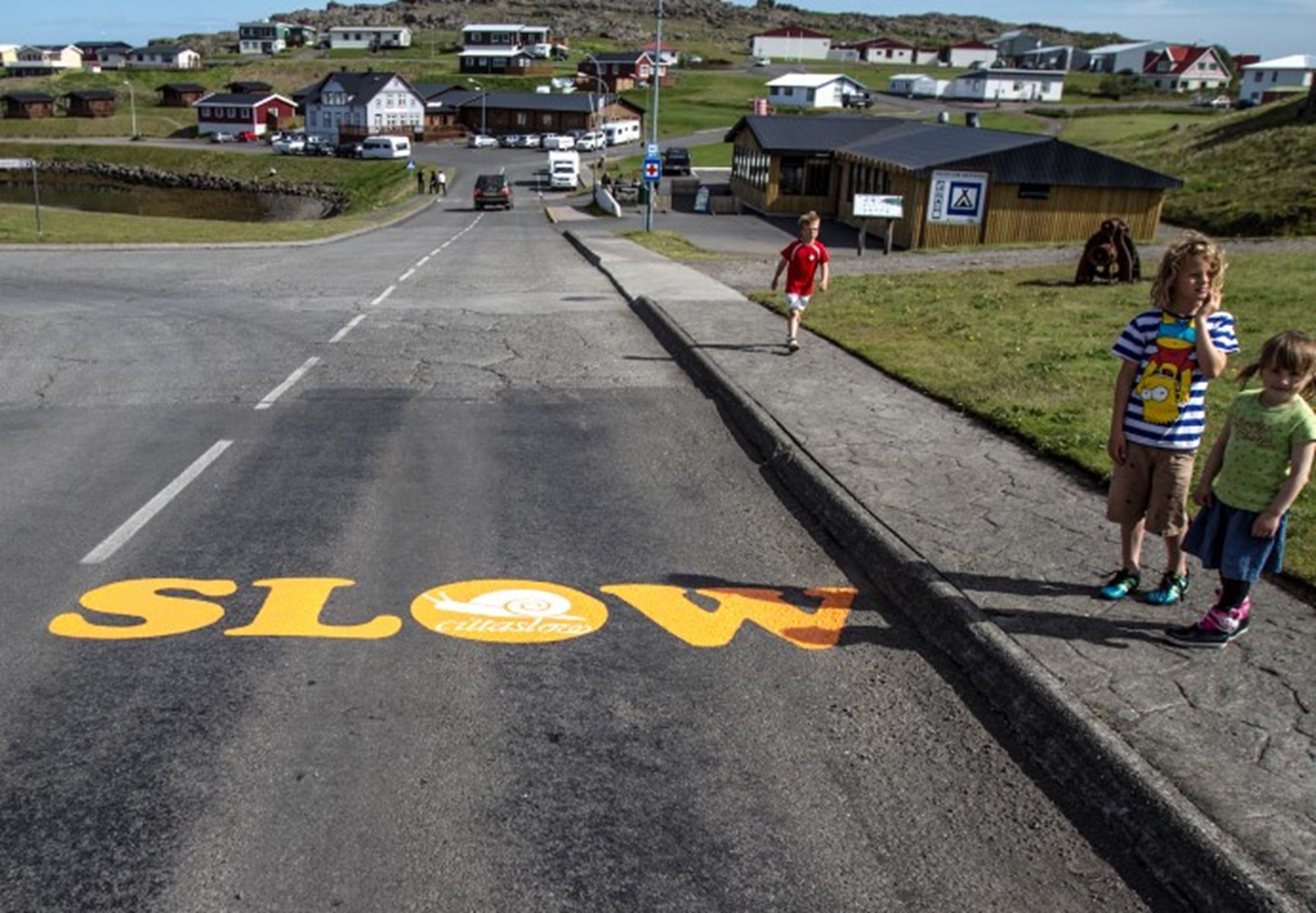
Cittaslow’s criteria fall into six categories that reflect Cittaslow’s core values and ideologies: the environment, community infrastructure, the quality of the environment, protection and incentives for local production and products, hospitality, and last but not least, Cittaslow’s awareness. The criteria that fall into these categories are specified here .
Supporters of Cittaslow – Djúpivogur district:
- Respect Cittaslow’s ideology and act on it.
- Are willing to commit to following the Cittaslow standards set forth by Cittaslow International at any time.
- Show the above points in will and work, for example by participating in the development of projects and incidental events related to Cittaslow in Djúpivogur, such as Cittaslow Sunday.
- Sponsors are open to collaboration with other Cittaslow Supporters within the municipality on the production, development, sale and use of local products and services.
- Owners and employees can share basic information about Djúpivogur district and Cittaslow’s ideology, introduce the organization and the company’s participation as much as possible, such as in brochures and on the website.
- The owners make sure that the outdoor markings fit in well with the environment and are in accordance with the rules and standards of Cittaslow International and Djúpivogur.
- The staff shows a good sense of service and a positive attitude.
- The buildings and immediate surroundings of a company are well maintained so that it is tidy and attractive.
The Cittaslow logo is a seal of quality and a promise of the origin of products and / or services in the Djúpivogur district.
